By Bethany Green, Wan-Ting Chiu, Bi-Cheng Jian, Zhuo-Fan Mei
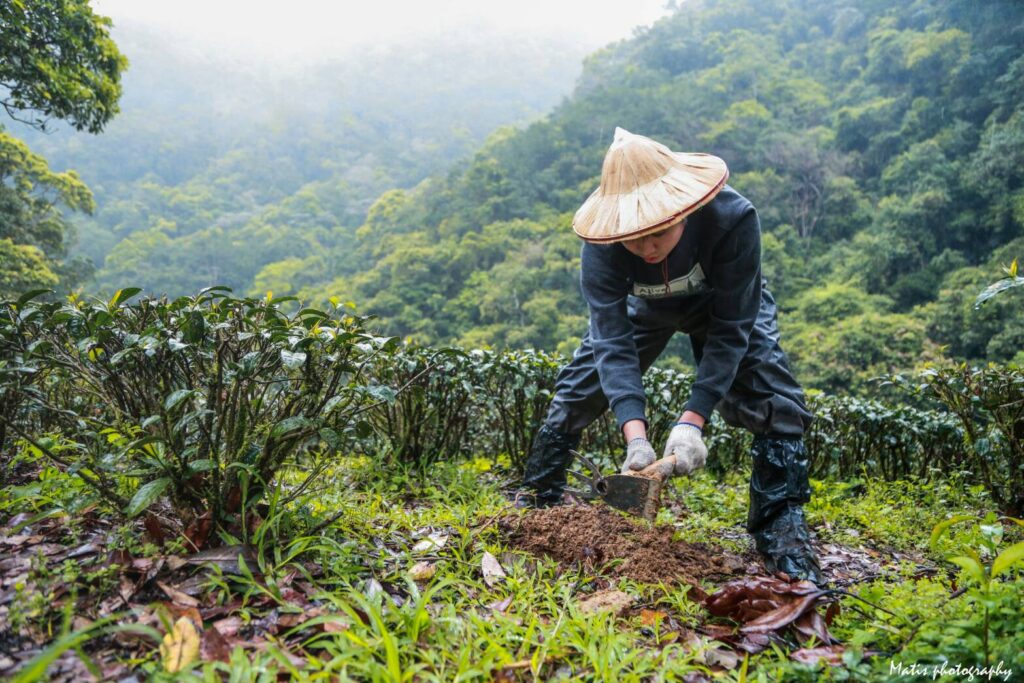
Tea is an essential element of Taiwanese culture. In the past, due to Taiwan’s geographical location and climate, tea was grown very successfully and became an important export product.
The present day techniques for tea cultivation and production have been refined throughout the Qing Dynasty, Japanese occupation and National Government rule in Taiwan. Its cultural importance dates back as early as the Song Dynasty, where it was included in the travel book, ‘Dreams of the Former Capital’ as one of the seven necessities of Chinese life (開門七件事) — “Firewood, rice, oil, salt, sauce, vinegar and tea are the seven necessities to begin a day.”
These days, consumers are more environmentally conscious when it comes to purchasing products, including tea, as they look for labels such as organic, sustainable, green, eco-friendly, fair trade and non-toxic. This has required agricultural producers to seriously consider the viability of conventional farming techniques. Profit margins, ease of growth, export availability, environmental awareness and sustainability are just a few of the factors farmers face when deciding between the three leading philosophies of agricultural cultivation: conventional, organic and eco-friendly.
Conventional cultivation is the most common method of cultivation. It allows farmers to use chemical fertilizers and pesticides to prevent disease and harmful insects from damaging the tea trees. In terms of mass production, this is the most effective way to grow tea.
Organic cultivation is a legally defined term set out in the Organic Agriculture Promotion Act, promulgated on May 30, 2018. It refers to any farming practices “without using chemical fertilizer, chemical pesticide, genetically modified organism, and related products, based on the principle of ecological balance and nutrient recycling.” As of April 2019, there were 277 tea farmers using organic agricultural cultivation in Taiwan, showing a steady increase from the 239 farmers three years prior.
The third method, eco-friendly cultivation, refers generally to products that don’t bring harm to the planet. As Taiwan does not have any specific regulations regarding what products can be labeled ‘eco-friendly,’ every farmer may have their own definition of the term and may use different methods of eco-friendly cultivation.
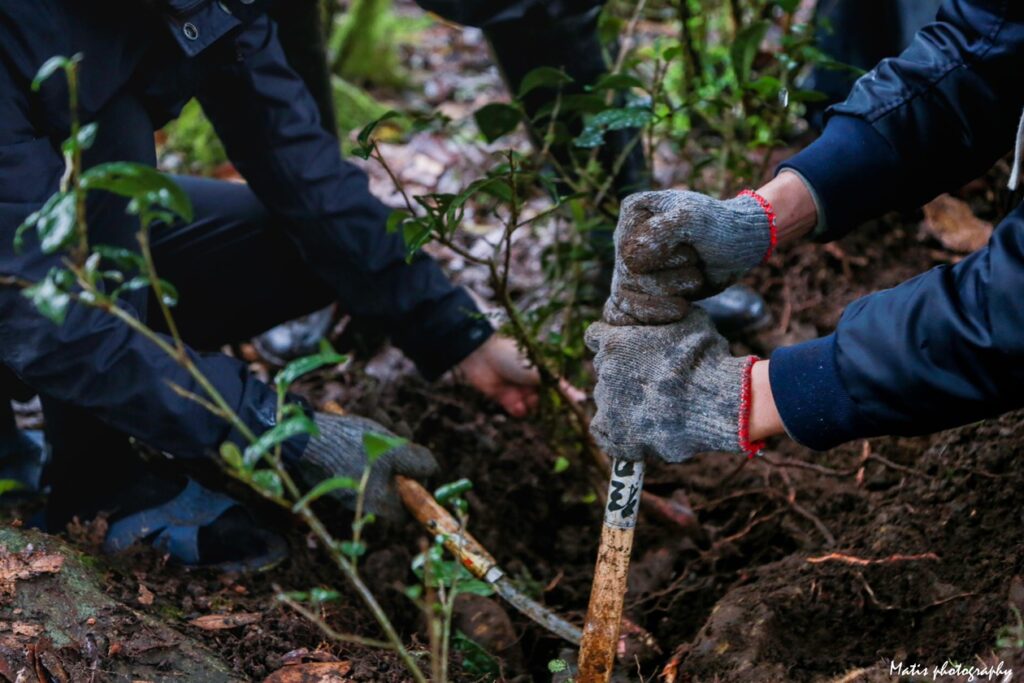
There are no direct penalties for the misuse of the eco-friendly label. However, if the farmer is a member of one of the 34 government-supported eco-friendly promotional groups and is found to have violated any eco-friendly principles, they will be removed from the group. The promotional group’s eco-friendly principles are very similar to those followed by certified organic farmers, for example, a total ban on the use of synthetic fertilizers and pesticides. If a farmer is removed from the group, they will no longer have access to the eco-friendly related support such as educational training, promotional opportunities or subsidies. Farmers are also accountable to the local government in regard to food safety regulations.
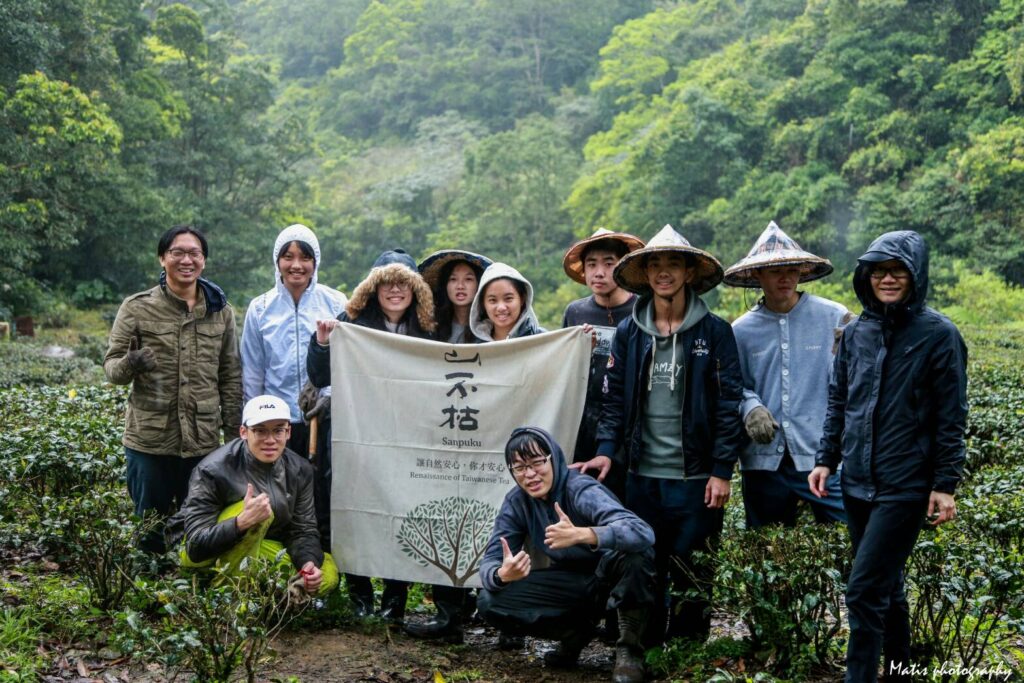
Challenges and opportunities – “It’s not about right or wrong, it’s about survival”
Sanpuku is a Taiwan-based tea company. They have an eco-friendly tea farm in Pinglin, New Taipei City, which they acquired in 2017 and use to study the relationship between the tea, the land and the wildlife.
“At Sanpuku, we define eco-friendly tea as tea that has not been contaminated by pesticides during the cultivation process,” Shane Lee, co-founder of Sanpuku, said.
Lee explained how Sanpuku applied for in-conversion organic certification — the first phase of legal organic certification — towards the end of 2017.
“However, because the previous owners of the property had used conventional methods to cultivate tea for many years, traces of pesticides still remained in the earth, and we didn’t pass,” she said. “When we applied for the pesticide residue testing again in May 2018, we passed.
“We would like to spread the idea that our preference of tea has an impact on the creatures around us. Eco-friendly cultivation promotes a natural relationship between biodiversity and tea. The chemical pesticides are bad for the insects, the tea tree and our own health.”
Managing an eco-friendly farm is not an easy task. Compared to conventional methods of cultivation where weeds, harmful insects and disease can be eliminated relatively easily through the use of synthetic chemicals, eco-friendly farmers must pay close attention to the health of their crops — manually removing the grass and weeds that compete with the tea trees for nutrients.
“The most difficult part of managing eco-friendly or organic tea farm is the weeding,” Lee said. “During the springtime, the tea plantations need to be weeded twice, which is labour-intensive work.”
Mr. Zhang, a conventional tea farmer working at the Taipei Teiguanyin and Paochung Tea Promotion Center, further explained some of the difficulties facing organic and eco-friendly farmers.
“You need to have very specific conditions to grow organic produce without human intervention, and as a result, the amount you can grow organically is less,” he said.
Zhang said that after generations of pesticide and chemical fertilizer overuse, the whole ecosystem has changed. Now, many people are starting to go back to organic produce. However, the higher cost can be a deterrent for both farmers and consumers.
“Organic farming is more difficult. For example, the tea leaves must be handpicked — you can’t use machines as you can in conventional farming, and therefore it is more expensive,” Zhang said. “The price will be at least twice, sometimes four times the price of conventionally grown tea.”
When farmers choose which cultivation method to invest in, they have to be financially savvy.
“They are not only farmers, but also businesspeople,” Lee reinforced. “It’s not about right or wrong, it’s about survival — farmers will choose the method that can make money for them.”
Lee said that many farmers will have more than one tea farm — an eco-friendly or organic farm, and a conventional farm. This is often beneficial as they can provide more choices to customers, and also allows them to “test the waters.” As the production costs for organic cultivation are higher, farmers want to be assured there is a demand for their products.
“Society is power” – working together to achieve mutually beneficial outcomes
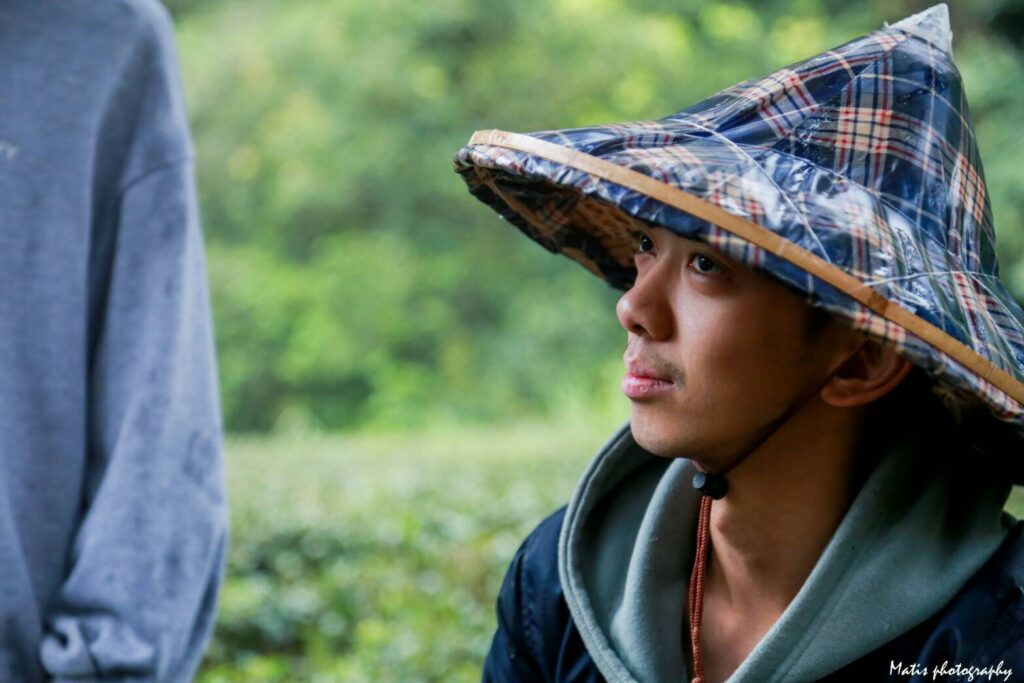
A lack of demand is a significant concern for farmers, and not without reason. The Taiwanese government officially recognises the organic equivalences of 22 countries, allowing their imported products to be sold and labeled as organic in Taiwan. However, the recognition is unilateral. Not one country in the international sphere formally recognises Taiwan’s organic equivalency. As a result, organic Taiwanese tea is not competitive in the international market, particularly compared to Taiwanese high-mountain and award-winning teas that already have a strong foothold in the market, as they cannot be marketed as organic.
The Taiwan Organic Industry Development Association is one group looking to support farmers in this respect. The Association is formed jointly by organic producers, manufacturers and retailers in Taiwan. In 2018, they began collaborating with the government to assist the organic tea industry through research and outreach to organic tea farmers throughout Taiwan — offering assistance through cooperation and the establishment of an integrated ‘Taiwan Organic Tea’ brand. The goal of this brand is to promote the professional production of Taiwan’s organic specialty tea, and to nurture regional group cooperation and development.
“Farmers will say, ‘You want us to use organic methods of cultivation, but where are the products going to go?’ We need to expand beyond domestic sales. We need to export,” Maggie Ray, a member of the Taiwan Organic Industry Development Association and the Taiwan Organic Tea brand, said.
“Taiwan’s tea variety cultivation and production techniques are very famous — especially oolong tea, oriental beauty tea and black tea — so we have a good opportunity to enter the global tea market.”
The Organic Agriculture Promotion Act (promulgated 2018) will address this issue when it comes into full force on May 30, 2019. Chapter 6, Article 37 of the Act will abolish the equivalence recognition for products from the 22 countries that are currently able to be sold in Taiwan under the organic label unless they reach mutual organic equivalence by signing a bilateral treaty, agreement or official document. Put simply, they must agree to allow Taiwan’s organic produce to be sold as ‘organic’ in their country in order to have their produce sold as ‘organic’ in Taiwan. This is positive progress and has great potential to expand the export opportunities for organic farmers.
The Taiwan Organic Tea brand is particularly beneficial for individual farmers who may not have the time or knowledge to effectively promote their organic tea.
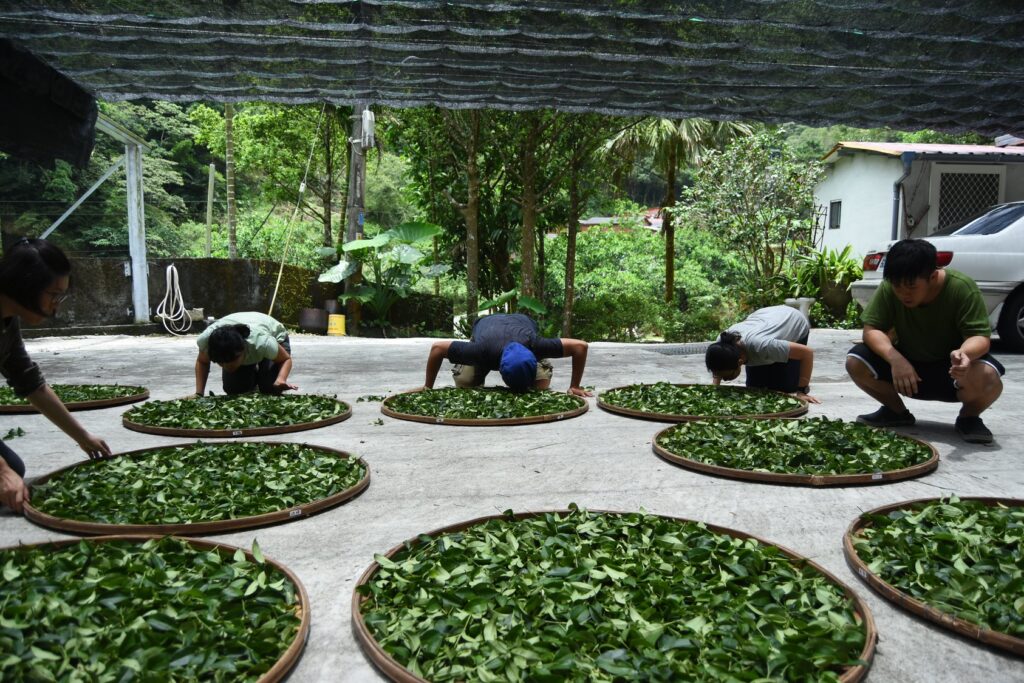
“Society is power — we help each other to promote organic tea,” Ray said. “We connect farmers upstream and downstream to organic producers, packagers, researchers and people who specialize in promotion. The farmers are then able to focus on their area of specialization — tea farming — and are supported to become more competitive in the market as a team.”
Currently, the Taiwan Organic Tea brand incorporates 16 organic tea areas including the Pinglin Pouchong Tea Zone, Sun Moon Lake Black Tea Zone and the Alishan Alpine Tea Zone. They are consolidating with the organic research and development sector, using their shared expertise to expand into natural cosmetic products and specialty health foods such as gluten-free cookies and noodles — all containing high-end organic tea elements — which appeal strongly to the international market.
They also provide technical services for farmers to develop and improve their skill and proficiency in organic agricultural production, and to help ease the transition from conventional farming.
“Organic and eco-friendly farming requires farmers to adopt a whole new skill set and perspective, and this can be difficult for older farmers to become accustomed to — especially if they are used to solving problems such as insects and disease with synthetic chemicals,” Ray said.
Ray further explained how many farmers considering switching from conventional to organic are afraid that they will not be able to effectively mitigate disease and harmful insects, and that their yield will be reduced significantly when problems arise. The technical classes support these farmers by providing information, resources and strategies to adapt successfully to the demands of organic farming.
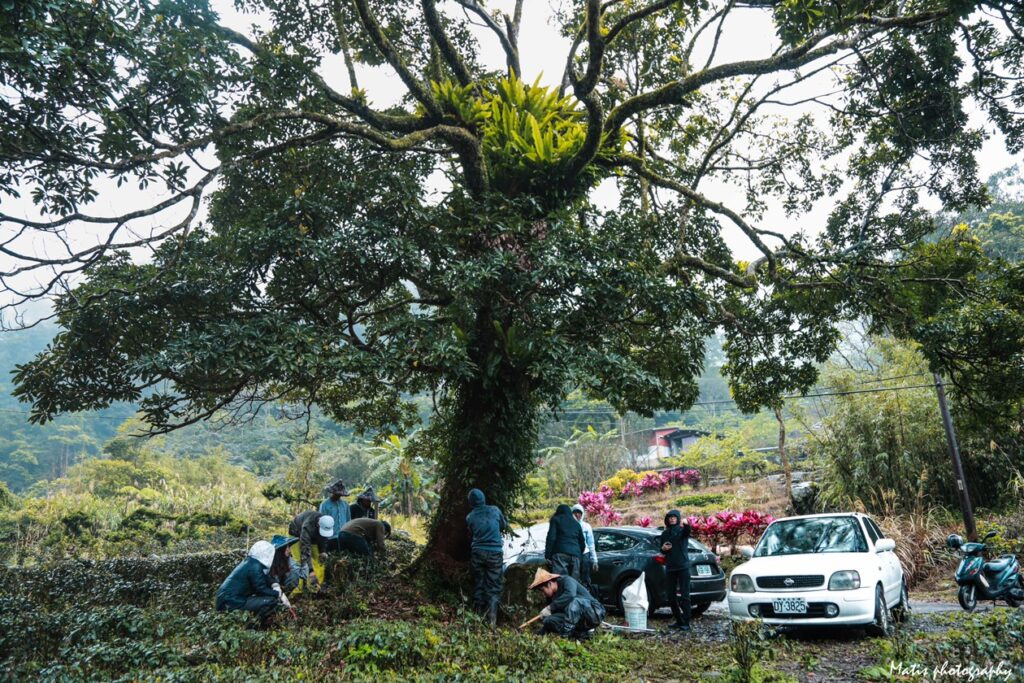
The future of eco-friendly and organic tea in Taiwan – “The new generation of younger people protect their land in their own way”
The promotion of organic agriculture in Taiwan is still a fairly recent concept, first taking root in 1996. Despite the health benefits, eco-friendly and organic tea still struggles to attract consumers.
“Tea is not like fruit or rice, which we need to eat frequently. Most tea consumers will prefer to choose an award-winning tea or a high-mountain tea — whether the tea is organic or eco-friendly is of lesser importance,” Ming Yang Kuo, co-founder of Sanpuku, said.
Usually, those who purchase eco-friendly tea include the more health conscious members of society or the elderly. Younger consumers are also an emerging market.
“From the feedback we have collected at Sanpuku’s events, we have found that if we talk to the young generation about the relationship between tea, the ecosystem and current scientific understandings, they will be more interested than the elderly population,” Kuo said. “Modern young people’s concept of eco-friendliness is gradually improving, as is their value of the natural environment. They also have a clearer understanding of the impact of the environment on individuals.”
Kuo is optimistic about the future of the eco-friendly tea industry in Taiwan. “The new generation of young people protect their land in their own way,” he said.
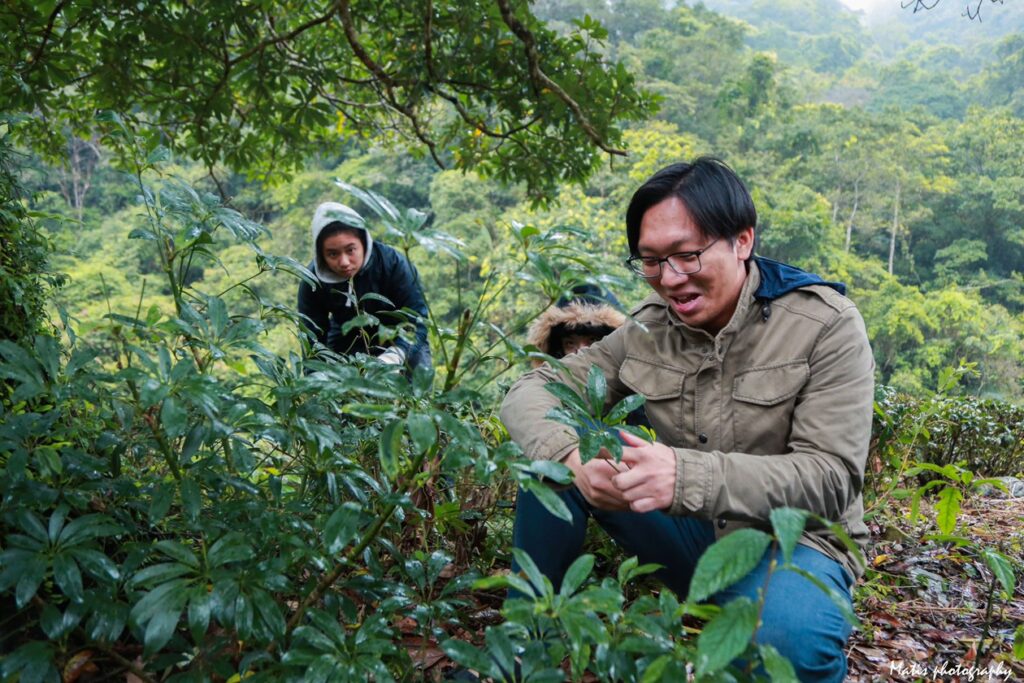
Run-Cih Chen, 19, is a student at National Taiwan University. She studies social work, and as a part of her degree, takes a practical farming class at Sanpuku’s Pinglin tea farm.
“When I buy fruits or nuts I always check to see whether they are organic or not,” she said. “I think eco-friendly agriculture is very important because it protects not only my body, but also the environment.”
Chen believes that the higher price of organic or eco-friendly produce is the main factor deterring potential customers. “However, in terms of convenience, it’s not hard to buy eco-friendly products in your life. In fact even 7-Eleven convenience stores sell eco-friendly products,” she said.
“I think we as a society have realised how much damage we have done to the earth, and we are slowly and seriously starting to take steps to fix the problem.”
Despite the uncertainties and challenges facing farmers considering transitioning from conventional methods, there seems to be growing momentum for organic and eco-friendly production. With strong government support, new export opportunities, assistance from groups like the Taiwan Organic Industry Development Association and increasing demand from environmentally conscious consumers, organic products are well suited to bring about the change.
Tea in Taiwan has a long and vivid history. The future of this ancient staple of Taiwanese life will be determined by how farmers adapt to, and overcome, the current challenges posed by the industry as it enters this new era of organic cultivation.


